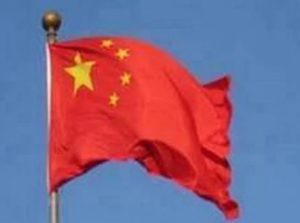
China’s imperial past contributes significantly in it’s approach it’s policy towards Xinjiang through the cultural genocide prism.
China’s brutal behavior in Xinjiang does not just reflect the country’s increasingly authoritarian turn under President Xi Jinping or the ideology of the Chinese Communist Party (CCP) whereas it arises out of a fundamentally colonial relationship between Beijing and a territory that it conquered long ago but neither fully incorporated into modern China nor allowed real autonomy, according to Foreign Affairs.
Over one million Uyghurs and other Muslim peoples in the western Chinese region of Xinjiang are in mass internment camps, prisons, and other penal institutions where they are subjected to psychological stress and torture, according to reports.
Further, Xinjiang, which Uyghurs view as their homeland and which means “new frontier” in Chinese, was conquered by the Qing dynasty in the mid-eighteenth century and absorbed into the empire as a province in the late nineteenth century.
When the Qing dynasty fell in 1911, the new Republic of China inherited this region as a distant colonial appendage, ruling over it through Han leaders who maintained a tenuous connection to central state power, according to Foreign Affairs.
Further, the China Communist Party (CCP) as it took over in 1949 and sought to exert greater control over the region renamed the territory the Xinjiang Uyghur Autonomous Region.
Xinjiang is home to around 10 million Uyghurs. The Turkic Muslim group, which makes up 45 per cent of Xinjiang’s population, has long accused China’s authorities of cultural, religious and economic discrimination.
Meanwhile, Xinjiang, which Uyghurs view as their homeland and which means “new frontier” in Chinese, was conquered by the Qing dynasty in the mid-eighteenth century and absorbed into the empire as a province in the late nineteenth century.
Furthermore, by 1959, the CCP espoused the view that Xinjiang was a historical part of China–a position it emphatically maintains to this day, denying the colonial character of the region’s entry into China, according to Foreign Affairs.
( With inputs from ANI )




 Driving Naari Programme launched in Chandigarh
Driving Naari Programme launched in Chandigarh






























